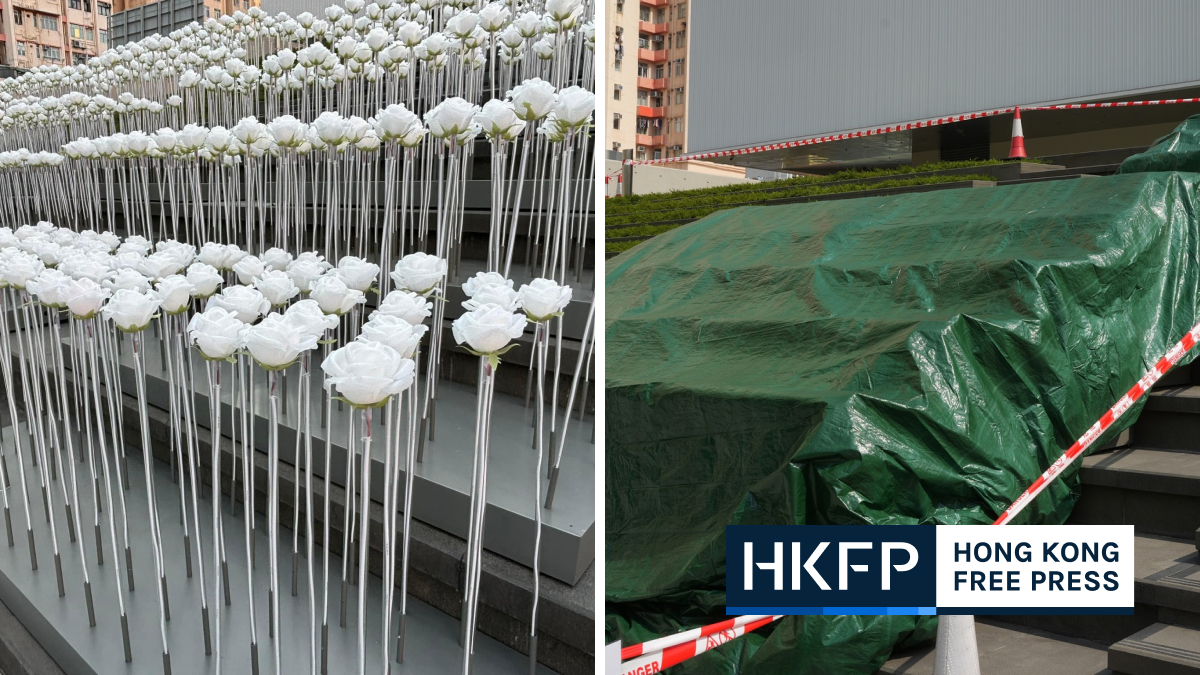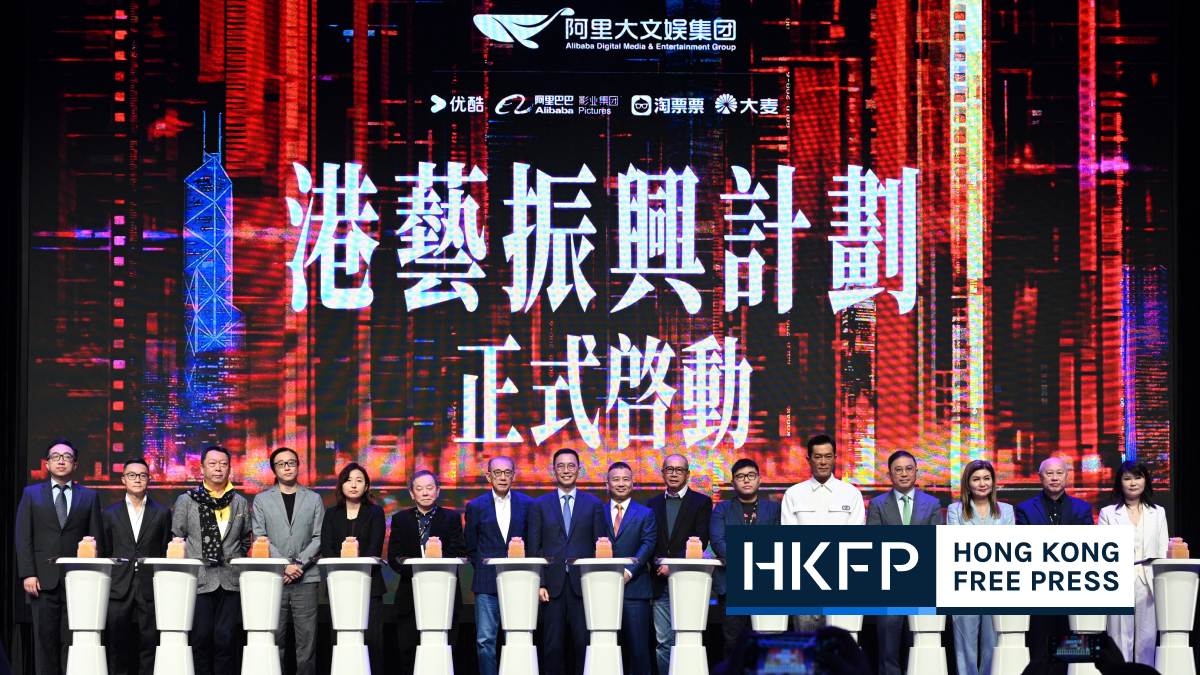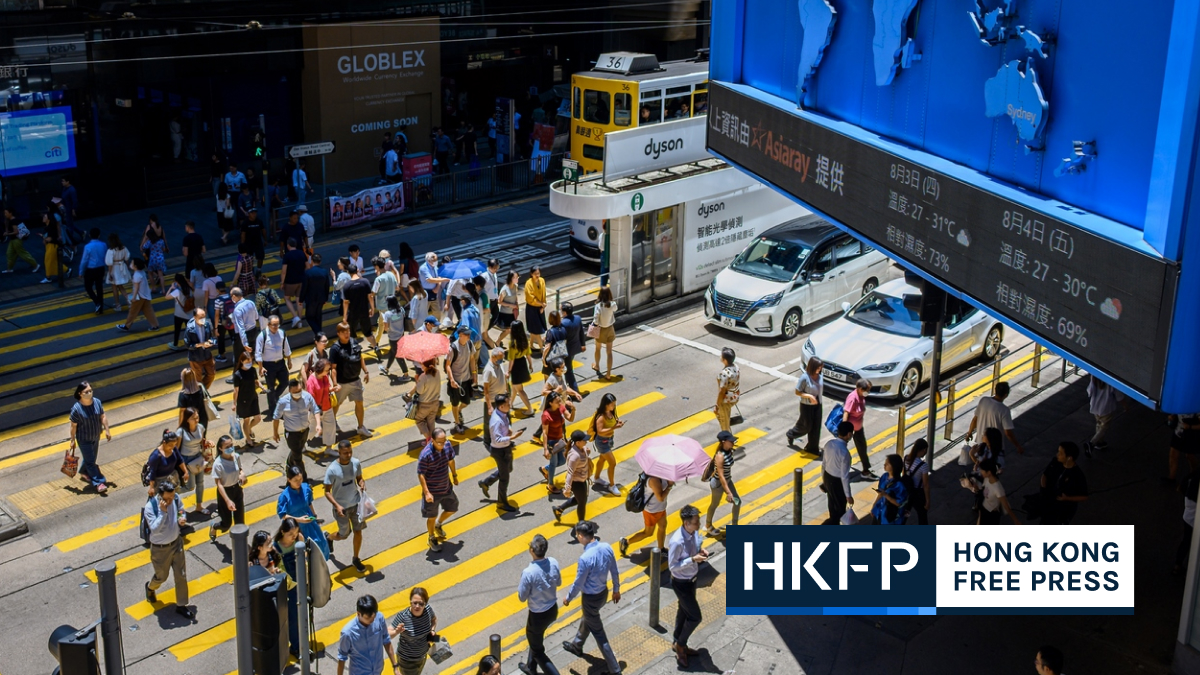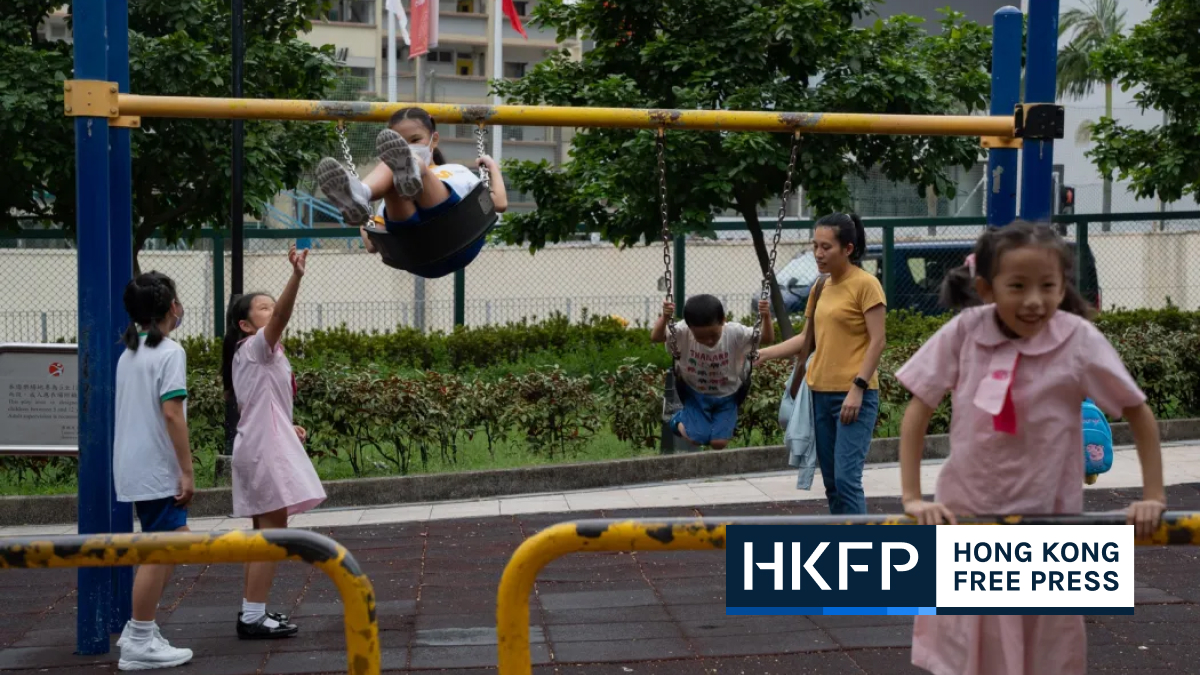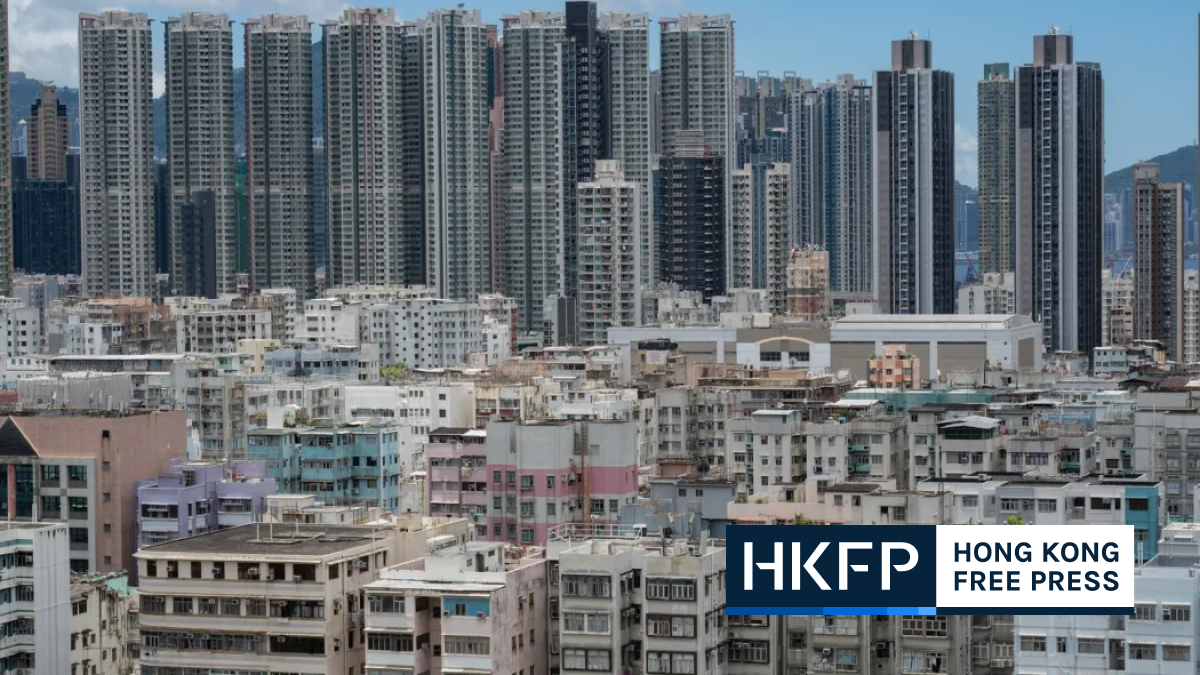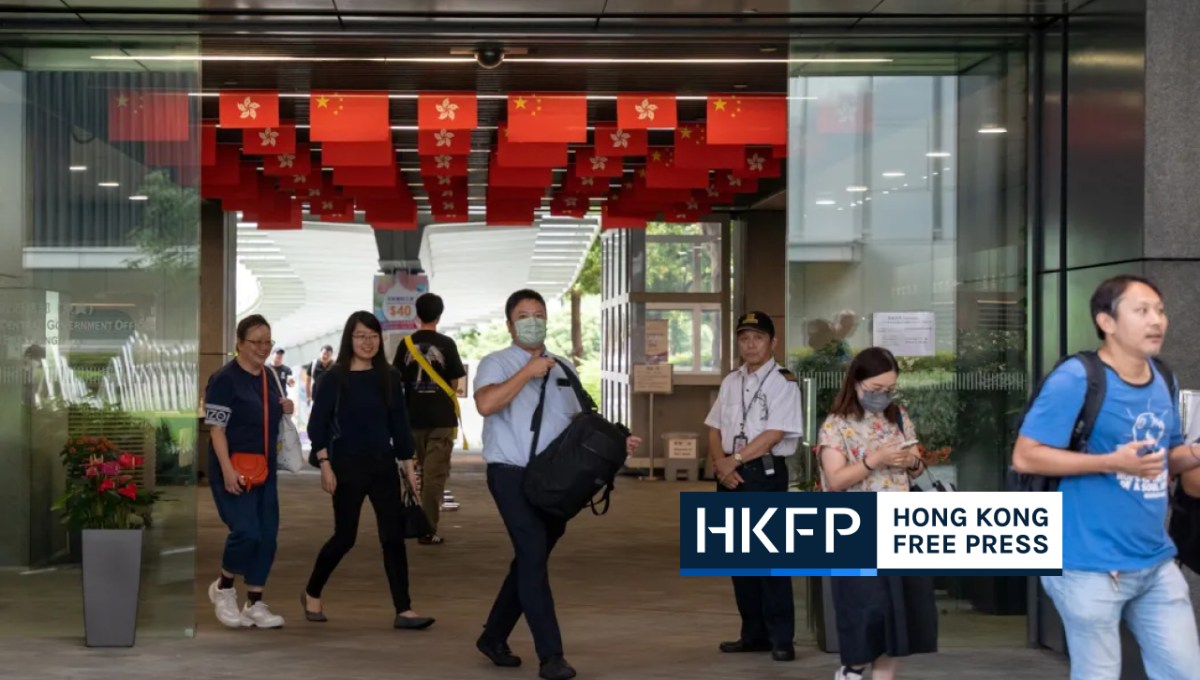Chief Executive John Lee’s second Policy Address has scored 44.4 on a 100-point scale, down almost seven points from his maiden address last year, according to a survey conducted by a Hong Kong pollster.
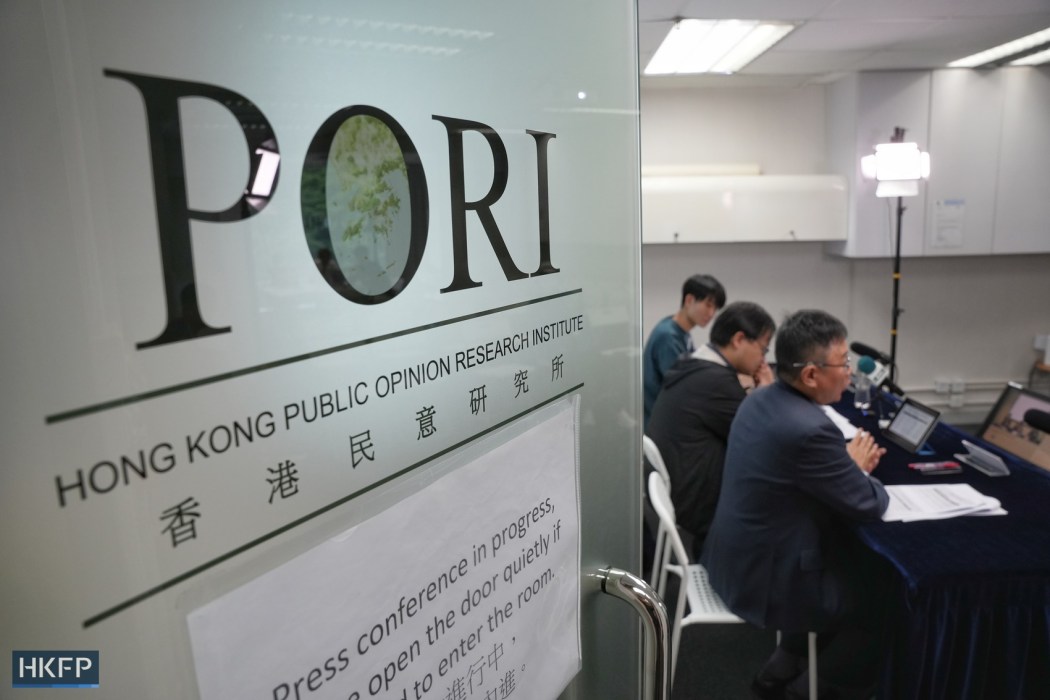
The Policy Address delivered on Wednesday yielded a net satisfaction rate of negative 6 per cent, with 34 per cent of respondents saying they were satisfied with the results, and 40 per cent saying they were dissatisfied, according to the Hong Kong Public Opinion Research Institute (PORI). The remaining 17 per cent were “half-half” on the address.
The PORI survey came a day after Lee delivered his second policy address, which focused on efforts to boost a stagnant economy, and included measures designed to boost childbirth, address substandard subdivided housing, and push patriotic education. Property stamp duties were also eased in a bid to boost the ailing property market.
Thursday’s poll findings showed that the public’s appraisal of this year’s address was “somewhat worse” than Lee’s maiden policy address last year, which was rated at 51.1 out of 100, PORI’s statement read.
There were a total of 681 respondents in the instant survey, which ran from 1.30 pm until 9 pm on Wednesday.
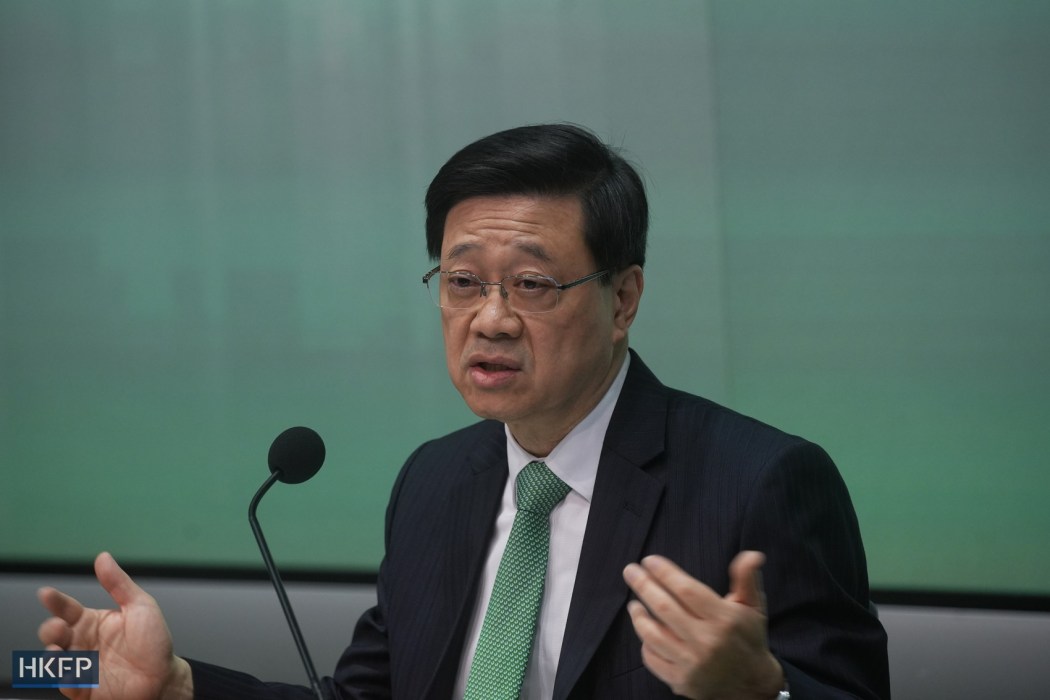
Lee’s own support rating, meanwhile, stands at 49.7 marks out of 100, down from his rating of 52.6 last month. His net approval stands at 20 percentage points, with approval at 51 per cent and disapproval at 31 per cent.
Veteran journalist and political commentator Johnny Lau, speaking at the PORI press conference on Thursday, said that while he did not disagree with Lee’s goal of developing the economy, the government would have to provide more information on how policies would impact society at large.
Also speaking at the press conference, veteran journalist Chris Yeung said the government, having “decimated” all opposition, should be “driving in the fast lane.” But that was not the case, he said, even under the government’s “patriots-only” political framework.
In March, 2021, Beijing passed legislation to ensure “patriots” govern Hong Kong. The move reduced democratic representation in the legislature, tightened control of elections and introduced a pro-Beijing vetting panel to select candidates. The Hong Kong government said the overhaul would ensure the city’s stability and prosperity. But the changes also prompted international condemnation, as it makes it near-impossible for pro-democracy candidates to stand.
Article 23
Notable among Lee’s policy announcements on Wednesday was the timeline for the enactment of Hong Kong’s own security legislation, Article 23. He said it would take effect in 2024, four years after Beijing bypassed the local legislature to insert a national security law directly into Hong Kong’s mini-constitution following a year of pro-democracy protests and unrest.
Article 23 of the Basic Law stipulates that the government shall enact laws on its own to prohibit acts of treason, secession, sedition and subversion against Beijing. Its legislation failed in 2003 following mass protests and it remained taboo until after the onset of the separate, Beijing-imposed security law in 2020. Pro-democracy advocates fear it could have a negative effect on civil liberties but the authorities say there is a constitutional duty to ratify it.
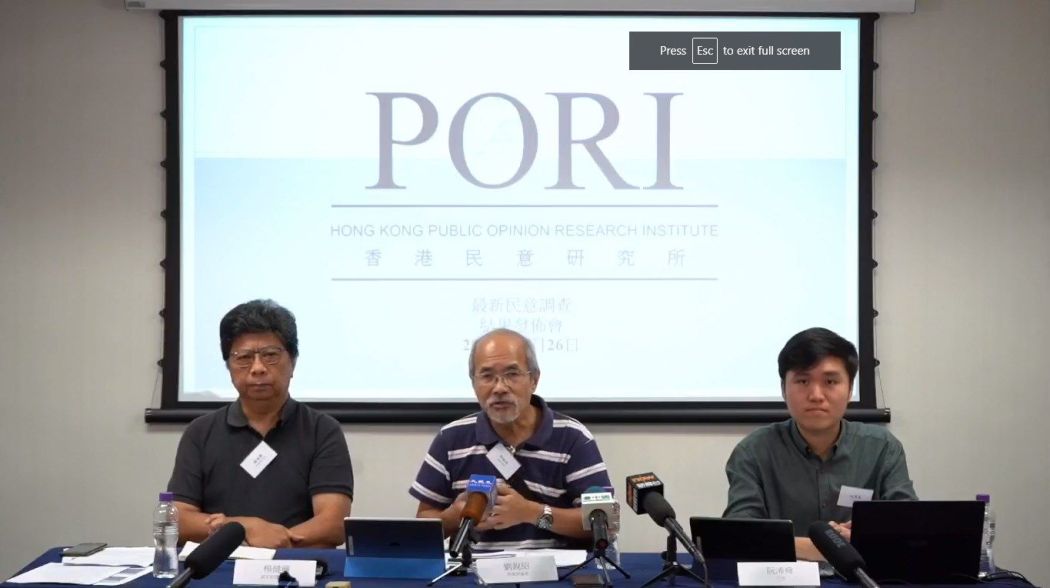
Yeung said the criminal ordinance and the national security law had already covered most offenses, and had already had a “significant impact” felt across society.
The existing security law has given police sweeping new powers and seen hundreds convicted amid new legal precedents, while dozens of civil society groups disappeared. The authorities say it has restored stability and peace to the city, rejecting criticism from trade partners, the UN and NGOs, despite an overall rise in crime.
Yeung, who co-founded defunct non-profit media outlet Citizen News, said Article 23 would have significant implications for foreign media outlets, as they might be at risk of violating offences relating to theft of state secrets and foreign bodies’ conducting political activities in the city.
The closure of Citizen News on January 4, 2022, came days after national security officers raided the Stand News newsroom and arrested seven people, causing it to shutter. Citizen News said it was closing to ensure the safety of its staff.
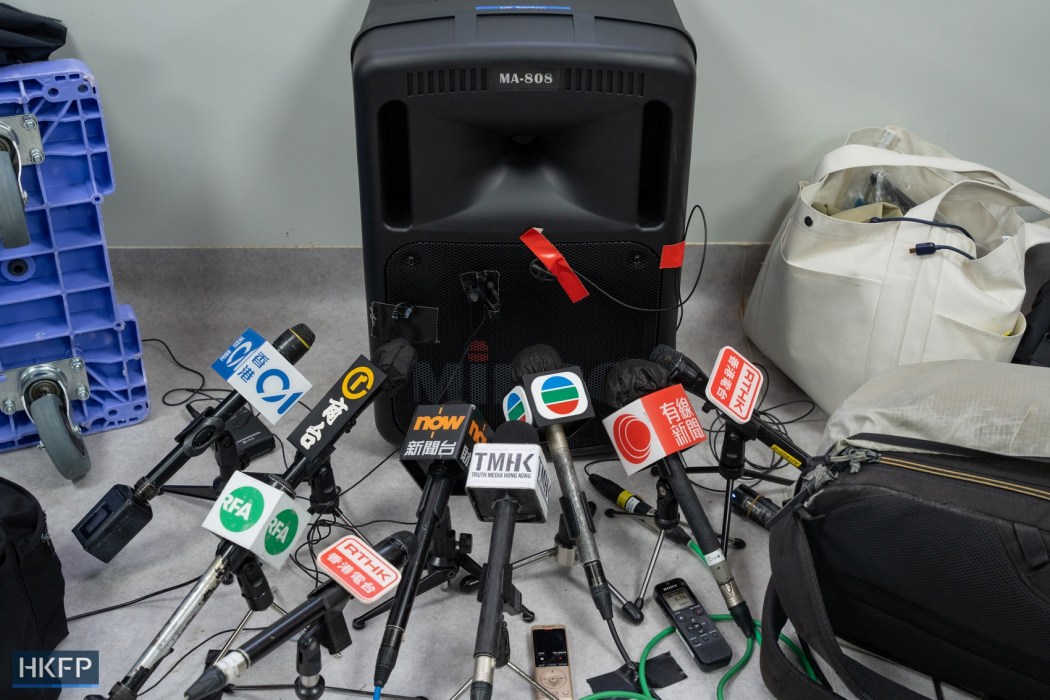
PORI also announced survey results on people’s appraisal of the news media on Thursday. According to the study, respondents’ net satisfaction rate with the overall performance of the news media stood at positive 16 per cent points.
Net satisfaction with press freedom in Hong Kong stands at negative 8 per cent, while a net 13 per cent of people believed the local news media had given full play to the freedom of speech. A net 32 per cent of people believed that local media had self-censored when reporting the news.
Lau said people had been paying less attention to the news, and attributed the trend to people feeling “helpless,” as if there was no point in keeping up with current affairs. “If you want to convince the public, you need facts and figures to back yourself up. You’re trying to convince the people, not your masters,” he said.
Support HKFP | Policies & Ethics | Error/typo? | Contact Us | Newsletter | Transparency & Annual Report | Apps
Help safeguard press freedom & keep HKFP free for all readers by supporting our team


